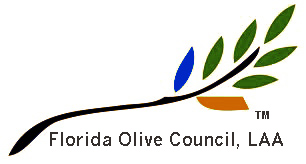Making Florida Olive Oil with Don Mueller
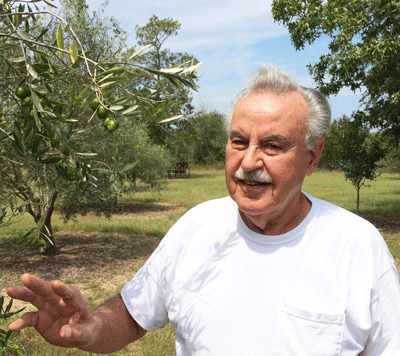
Don Mueller
The four hour drive from Gainesville was uneventful and I enjoyed the scenery, made some calls and arrived in Panama City around 8:00pm. After some confusion with the hotel reservation, I received the handicapped/honeymoon suite. It was one of those late 70’s “love rooms” with the hot tub and red heart-shaped shag rug a prominent feature in what would otherwise be a rather plain motel room.
After dragging the harvesting equipment out of the car, including the two 12v batteries , I secured the equipment in the room and went out for a meal. I dined at a restaurant near the fishing docks that was more on atmosphere than food. The shrimp had been sitting in brine for a while and a bit flimsy; but the service was descent and the drinks were nice. This was not the Panama City of my youth where you could by a fresh oyster for a dime. After supper I walked back to my truck and returned to a too-soft and too-big bed; I slept fitfully until the Aaahhhooooga horn on my smartphone startled me out of bed at 6:00am.
I met Don for breakfast at the local iHop and we traveled to his grove near Marianna, FL. Don is a well-tanned good-looking man over 6 feet tall and a splash of full greying hair. His eyes light up when he talks about olives and how he and his wife Janet visited Italy and got inspired to start their own olive grove in Florida. His Green Gate Olive Grove is a five acre plantation hosting mature olive trees including Ascolana, Arbequina, Coratina, Frantoio, Kalamata, Leccino, Manzanilla, Maurino and Mission. Our plan for the day was to harvest the Mission, Frantoio and Leccino. These trees were bearing the most fruit and the fruits of these trees are large and offer a good percentage of oil. In the picture below, you can see the two normal separations when milling olives. At the bottom are solids and water residue from the crushed and pressed olive paste. Above that is the oil. Judging from the level between the sediment and the oil there appears to be about a 25% yield in the photo below. This roughly comports with a fruit analysis done in the lab before the harvest.
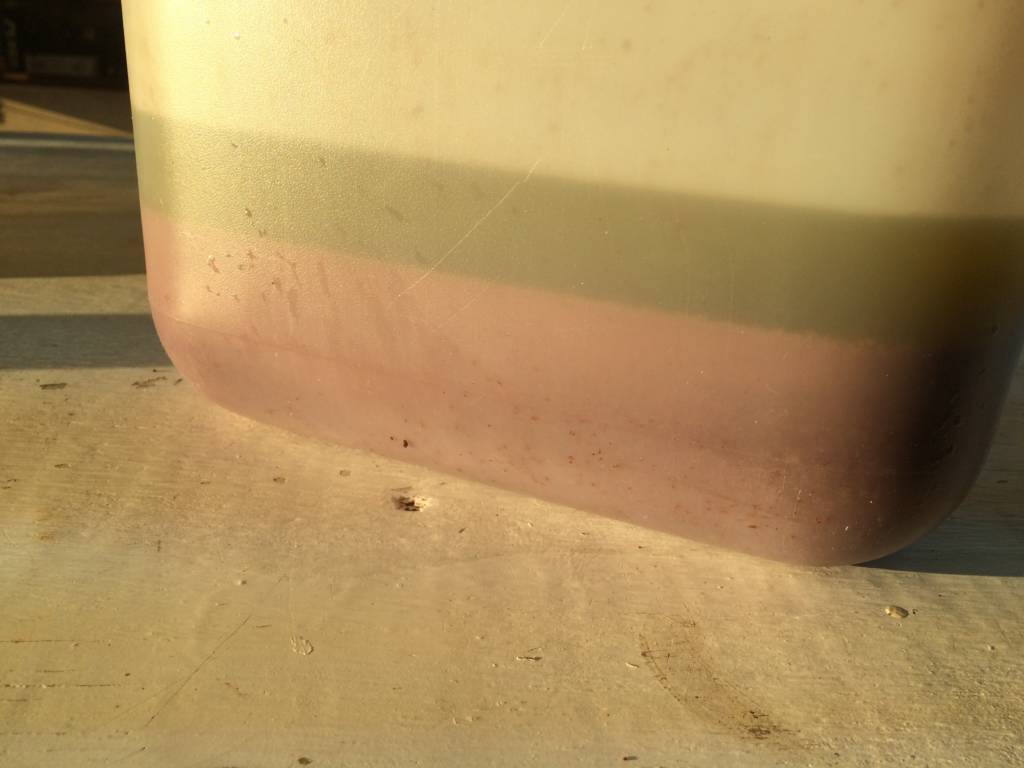
Fresh pressed olive oil floating on top of pulp (pate’)
However, before we mill, we must harvest. Don has a homemade olive harvesting rig that works very well. It is composed of a ground cloth set up on the back of a tractor. Once the ground cloth is in place the harvesting begins.
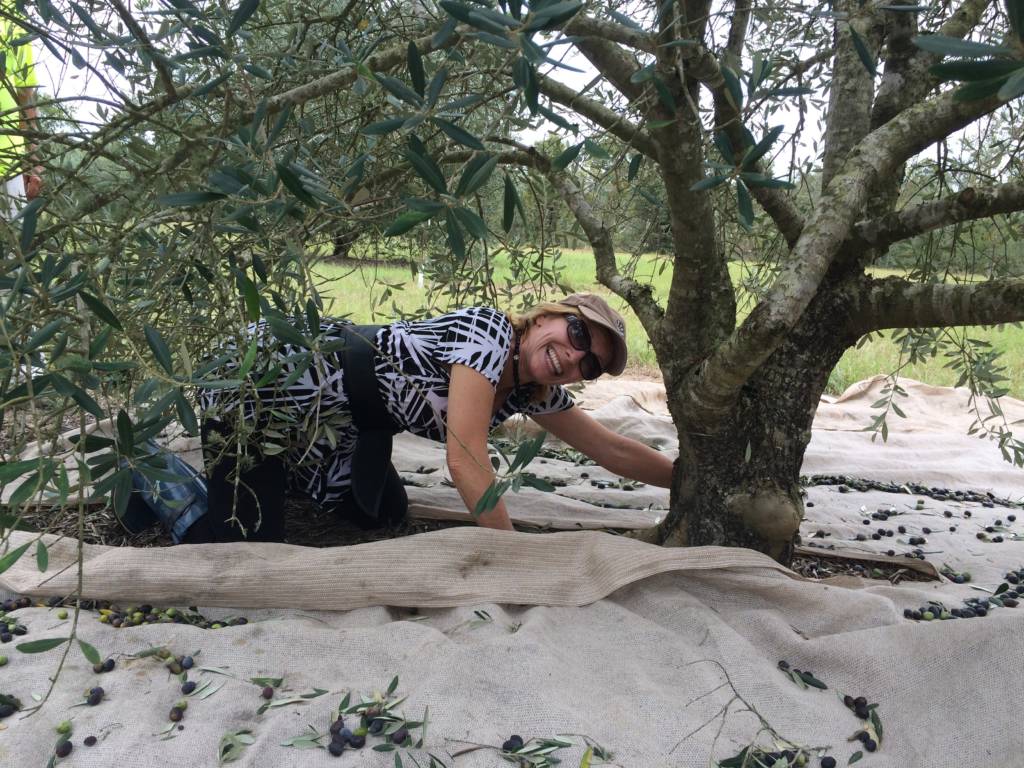
Denise Yon, of Tallahassee, harvesting olives at Don Mueller’s grove near Marianna, FL
We installed the ground cloth on the tractor and I set up the electric harvesters. Took batteries to first tree and hooked everything up. Denise Yon, my fantastic colleague from Cisco Systems, Inc., her beautiful mother and lovely friends from Tallahassee joined us and we picked 4 Frantoio trees and 2 Leccino trees – a total of perhaps 100-125 pounds of olives. We worked the Frantoio first – the trees were generally well-fruited.
After the Frantoio was harvested, the ladies made lunch and we sat and talked about old days at Cisco, Don’s trip to Italy and whether Stephen Stills wrote a song at Chesterfield Smith’s daughter’s house. After lunch we returned to harvest the 2 Leccino (one was fairly well set with fruit, while the second was less full). I had forgotten to bring the handheld leaf blower so we had more MOO (Material Other than Olives) in left in the crop. This required more cleaning to pick out the leaves and stems. The ladies were very helpful in this and seemed to enjoy the process.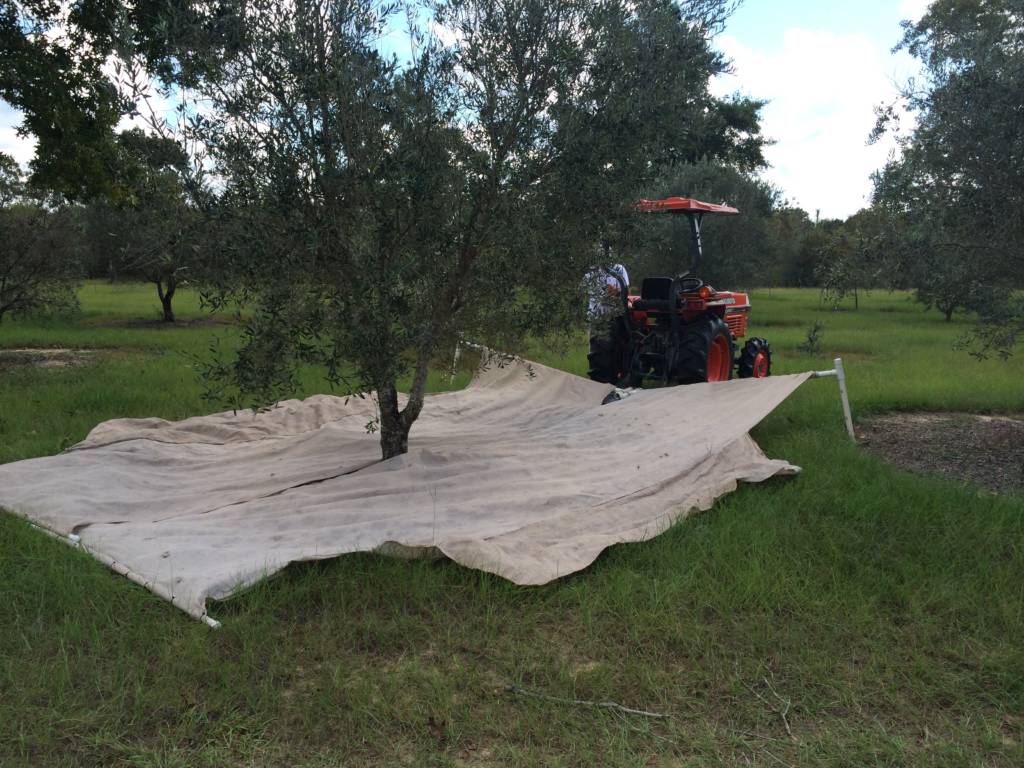
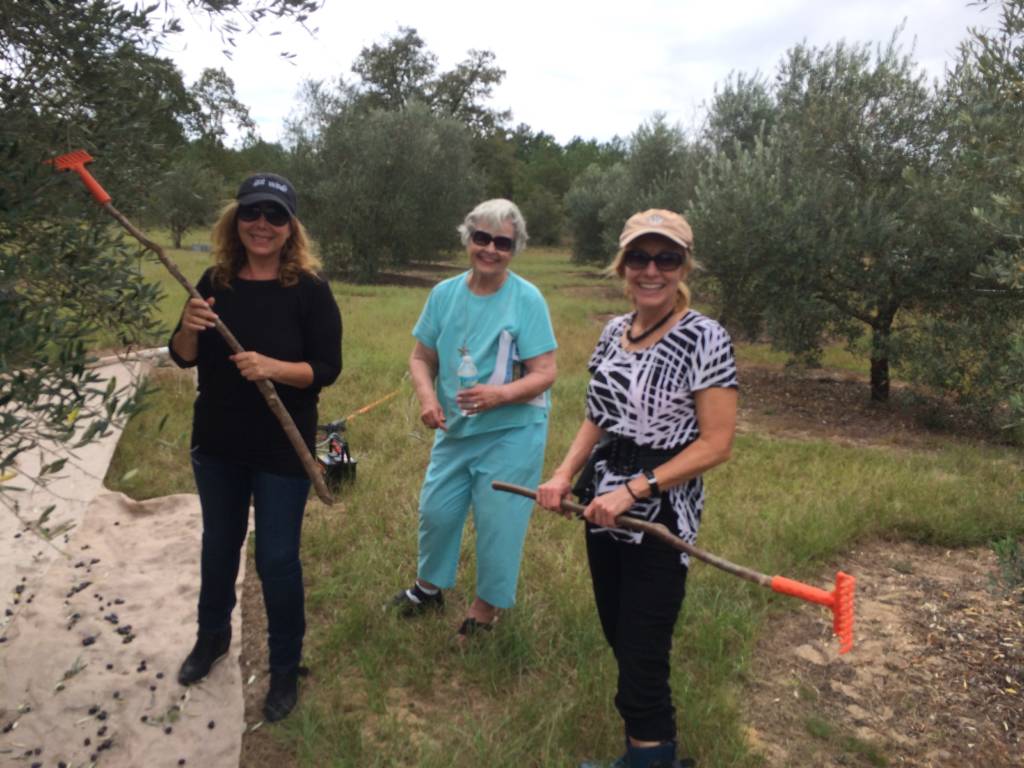
Denise Yon and Crew-2015
Around 2pm Don set up his oil processing rig consisting of a 15′ table with two stainless steel sinks at one end near a floor drain, an electric drill c-clamped to a 2 by 4 standing over a hole in the table top, a stainless steel bucket below the hole, a brewers paddle and a shop hydraulic press. A commercial 1hp garbage disposal was bolted under one of the SS sinks. After cleaning by the ladies, Don fed the olives a handful at a time into the garbage disposal. The brown-grey pulp oozed from the disposal discharge pipe into the steel bucket.
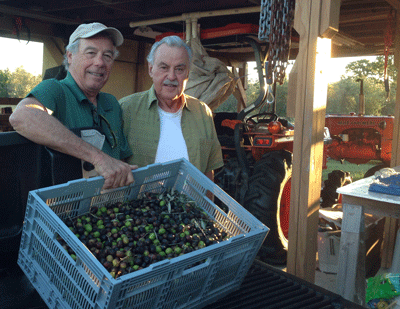
Michael O’Hara Garcia and Don Muller at 2015 Harvest
After the bucket was filled with ground up olives (Pate’) Don placed it beneath the hole in the bench. He attached a hexagon shaft welded to the brewer’s paddle into the chuck of the drill. Don turned on the drill at a slow RPM and the olive past was melaxed (the term means to knead, as in “knead the dough” in Italian). After melaxing for 45 minutes, the 9″ x 18″ squares of the paste were placed between lucite sheets and stacked under the press. A still plated was placed on top and the 20 ton capacity press pushed water and oil out of the olive past.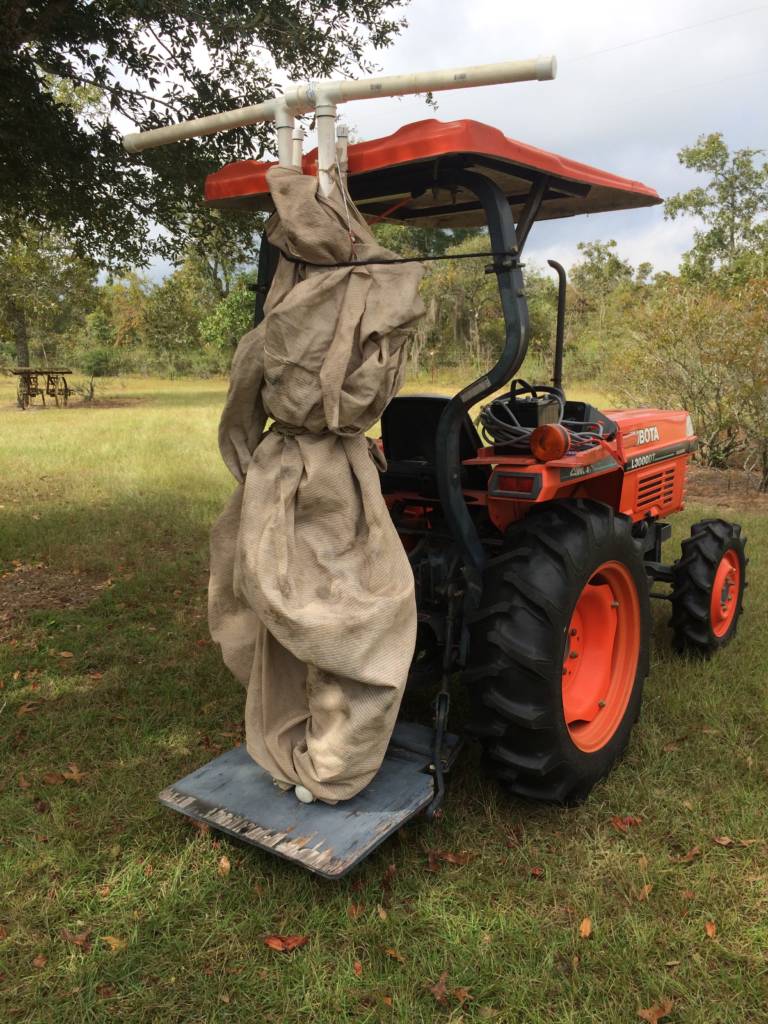 The oil water mixture was decanted and allowed to rest. Reverse osmosis was used to push the oil up and into a storage container. We did one batch and the ladies tasted the oil, bought two olive trees from Don and departed. Don and I cleaned up and I returned to the hotel very tired. Another fitful night in the love tub room.
The oil water mixture was decanted and allowed to rest. Reverse osmosis was used to push the oil up and into a storage container. We did one batch and the ladies tasted the oil, bought two olive trees from Don and departed. Don and I cleaned up and I returned to the hotel very tired. Another fitful night in the love tub room.
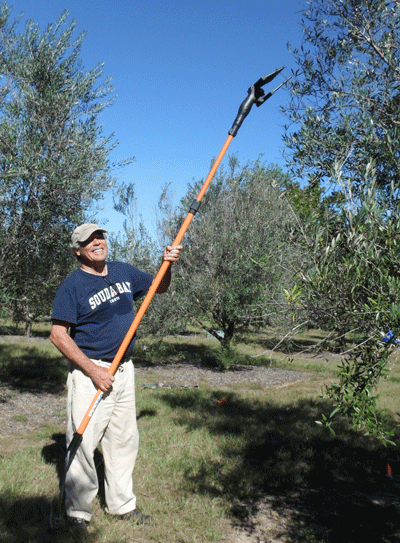
FOC president Garcia with electric olive harvester
9-18 Met Don at grove around 10:30a. We continued to press oil, took a break for lunch – Don’s chili, a dill pickle and some cheese crackers – diet off-brand cola. We returned to finish the pressing at around 5pm. From observation, we got about 7/8 of a gallon of Frantoio and and 1/4 gallon of the Leccino. I asked Don if we could take cuttings. He said no, he wanted to do it in the Spring so the tree would not display an “open wound” during dormancy. He thought the Spring would be a better time for pruning. I departed around 6:00pm, stopped for gas and a McDonalds chicken sandwich at Madison, watched part of the debate with some locals at the McDonalds, back in the truck and to LaCrosse. Slept better on the fouton.
We need your help.
The Florida Olive Council is a non-profit organization certified under Federal tax code 501(c)(3) and Florida statutes Chapter 617. We are supported by your contributions. Ninety-five (95%) of your donation goes directly to supporting olive research. Our directors and officers receive no salary or other compensation.
